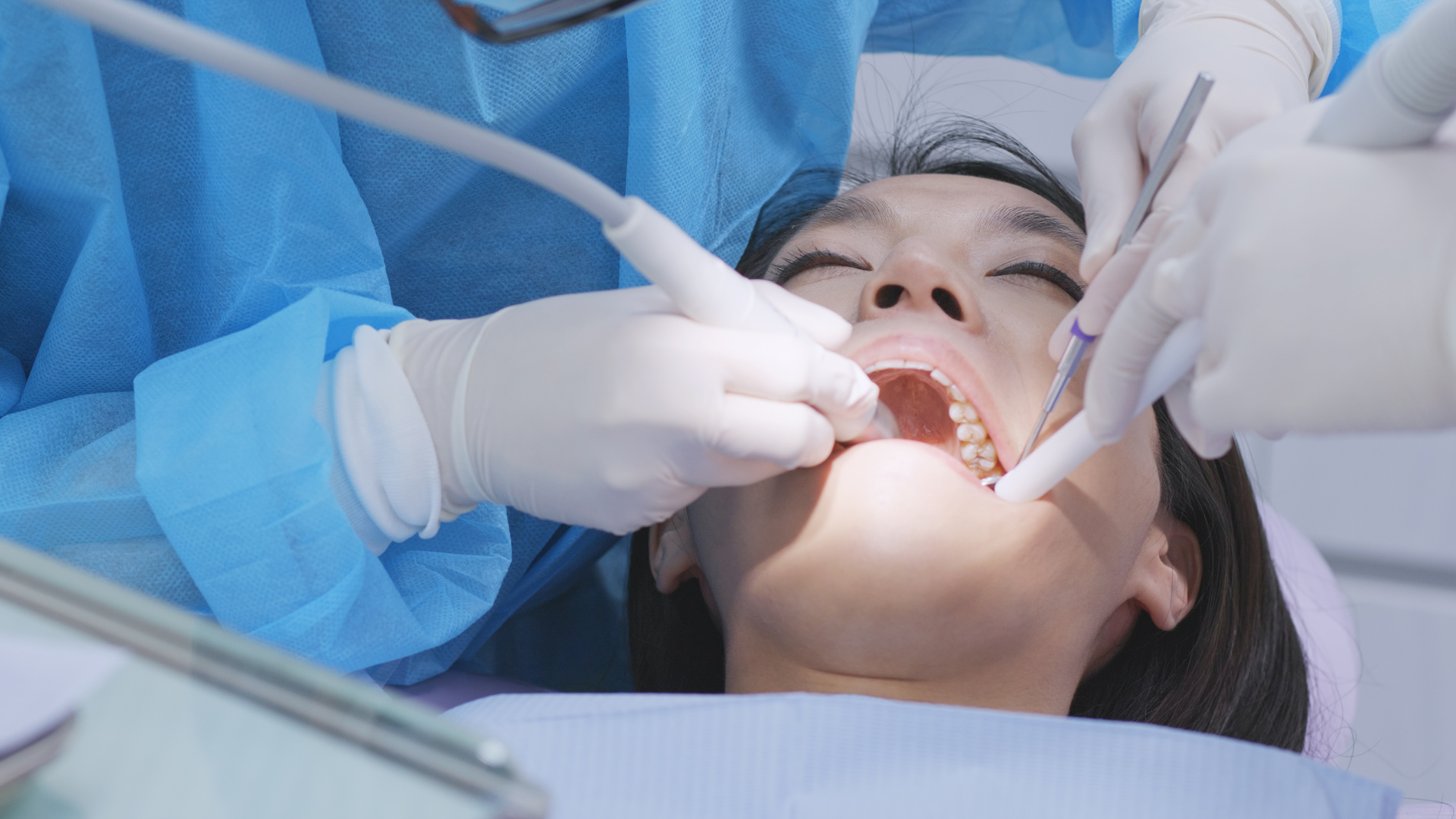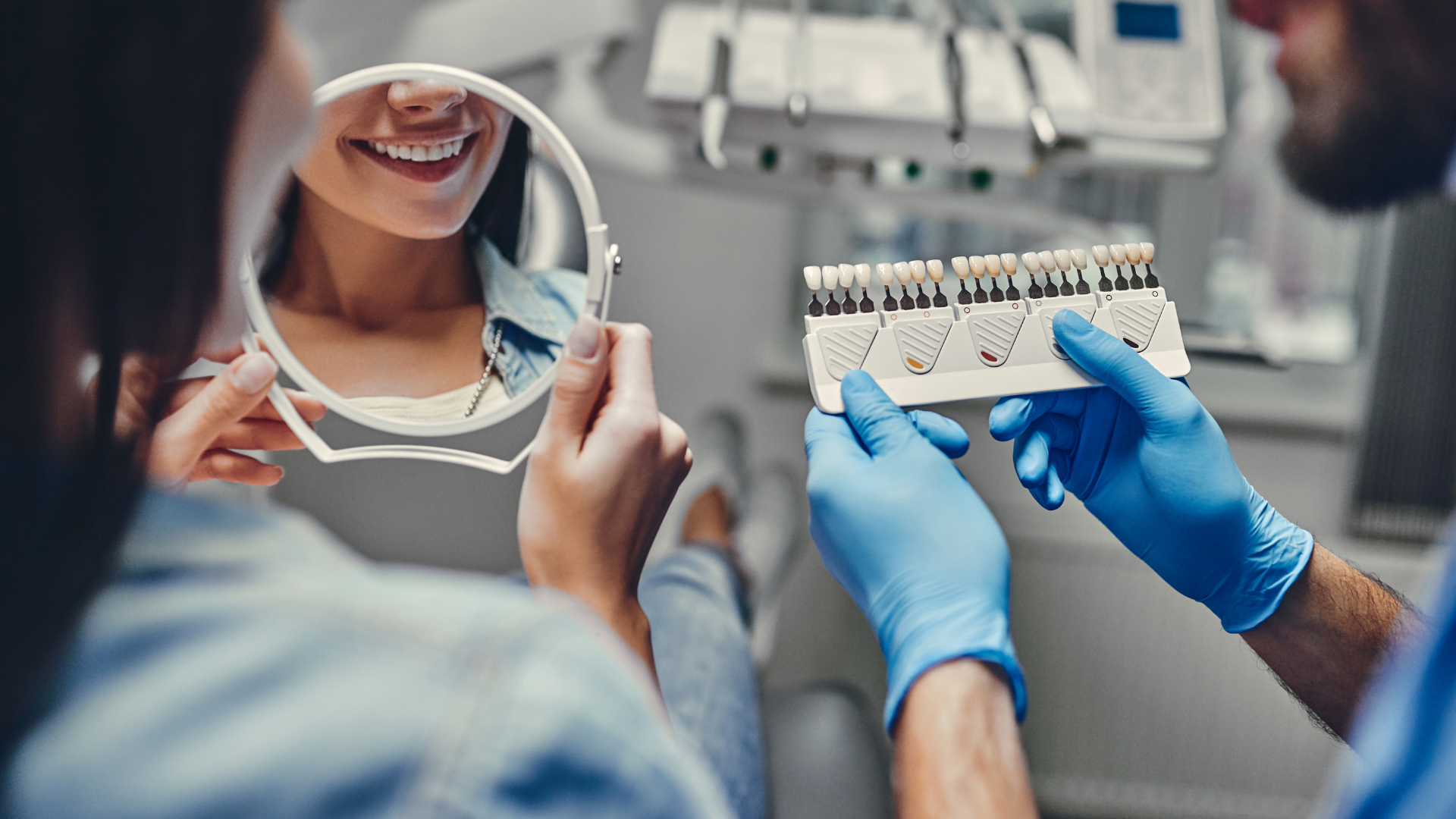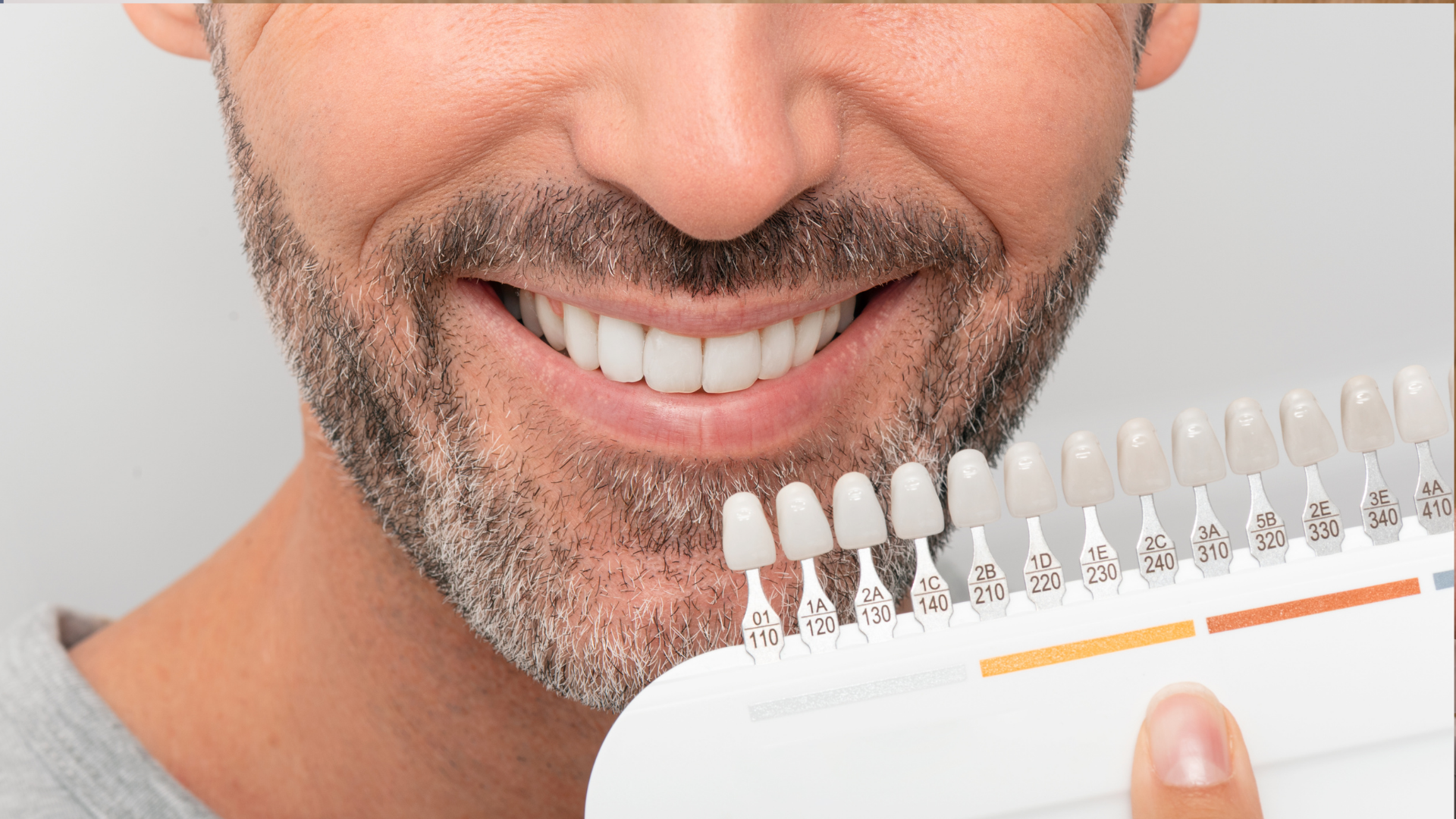What is Considered a Dental Emergency? Understanding When to Seek Urgent Care
Identifying Dental Emergencies
What Constitutes a Dental Emergency?
A dental emergency encompasses any oral health issue that necessitates immediate attention to save a tooth, relieve intense pain, or address a serious infection. Situations such as a knocked-out tooth, severe toothache, or a dental abscess are clear indicators of a dental emergency.
Dental emergencies can vary in severity, but they often involve sudden pain, trauma, or damage to the teeth, gums, or jaw that cannot wait for a regular dental appointment.
Understanding what qualifies as a dental emergency is crucial for timely treatment and can prevent further complications. Here are some common examples:
- Intense toothache
- Badly cracked or broken tooth
- Knocked-out tooth
- Partially dislodged tooth
- Dental abscess with swelling of the face or jaw
- Objects or food lodged between the teeth
- Exposed dental nerves
- Swollen, bleeding gums or swollen jaws
- Missing or broken dental fillings, crowns, and restorations
Recognizing these signs and acting promptly can be the difference between saving or losing a tooth, and in some cases, it can be critical for overall health.
Signs and Symptoms of Urgent Oral Issues
Recognizing the signs and symptoms of dental emergencies is crucial for timely intervention. Immediate attention is warranted when experiencing severe pain, swelling, or trauma to the teeth or gums. These symptoms can indicate underlying issues such as infection, decay, or injury that require prompt care to prevent further complications.
- Sudden, severe toothaches may suggest decay or infection.
- Broken or cracked teeth can lead to infections or more extensive damage if not treated quickly.
- Lost fillings or crowns expose sensitive tooth structures, necessitating swift dental care.
- Abscesses, characterized by severe pain and swelling, need urgent treatment to halt the spread of infection.
- Knocked-out teeth have the highest chance of being saved if re-implanted within an hour of the incident.
It's essential to act without delay when faced with these symptoms. Delaying treatment not only prolongs discomfort but also increases the risk of permanent damage or more complex procedures later on.
When to Seek Immediate Dental Care
Understanding when to seek immediate dental care is crucial for preventing further damage and ensuring a better prognosis. If you experience severe pain, bleeding that doesn't stop, or a tooth that has been knocked out or is loose, these are clear indicators that you need to see a dentist as soon as possible.
Swift action is essential in a dental emergency. Delaying treatment can lead to more severe pain, increased risk of infection, and potentially irreversible damage.
Here are some situations where you should seek immediate dental care:
- Severe pain that does not subside with over-the-counter pain relievers
- Uncontrolled bleeding after an oral injury
- Swelling in the mouth or facial area that is worsening or spreading
- Signs of infection, such as fever, pus, or a foul taste in the mouth
- A tooth that has been knocked out—time is of the essence to potentially save the tooth
Remember, if you are in doubt about the severity of your dental issue, it is always better to err on the side of caution and contact your dentist immediately. They can provide guidance over the phone and, if necessary, arrange for an urgent appointment or direct you to emergency dental services.
Actions for Common Dental Emergencies
First Aid for Knocked-Out Teeth
A knocked-out tooth is a dental emergency that requires immediate attention. Handle the tooth by the crown, not the root, to avoid damaging the tooth's chances of being saved. Gently rinse the tooth with water if it's dirty, but do not scrub or remove any tissue fragments.
If possible, try to reinsert the tooth into its socket. If you cannot reinsert it, place the tooth in a container of milk or a tooth preservation product.
Follow these steps to preserve a knocked-out tooth before reaching a dentist:
- Rinse the tooth gently with water.
- Attempt to place the tooth back into the socket.
- If reinsertion isn't possible, store the tooth in milk or saliva.
- Apply a cold compress to the area to reduce swelling.
- Seek emergency dental care immediately.
Managing Severe Toothaches and Abscesses
Severe toothaches and abscesses are not only painful but can also be signs of serious underlying issues that require immediate attention. Emergency dentists are equipped to provide pain management and address the root causes of these conditions. Treatments may include prescribing pain medication, performing root canal therapy, or tooth extraction.
In the case of an abscess, which is an infection that can spread if untreated, symptoms like fever, swelling, or a foul taste in the mouth may accompany the toothache. It's crucial to seek emergency dental care to prevent the infection from worsening.
To manage pain while waiting for professional care:
- Rinse your mouth with warm saltwater to reduce inflammation.
- Use over-the-counter pain relievers such as ibuprofen or acetaminophen.
- Avoid applying heat to the affected area as it may worsen swelling.
Remember, while these measures can provide temporary relief, they are not substitutes for professional dental treatment. It's essential to consult with an emergency dentist to ensure a proper diagnosis and treatment plan.
Handling Broken or Cracked Teeth
When you have a broken or cracked tooth, it's important to take immediate action to minimize pain and prevent further damage. Rinse your mouth with warm water to clean the area and apply a cold compress to the cheek to reduce swelling. It's crucial to avoid chewing on the affected side and to refrain from applying pressure to the tooth.
If there is bleeding, use a piece of gauze on the affected area for about ten minutes or until the bleeding stops. This can help manage the situation before you get to the dentist.
Here are steps to follow if you find yourself with a broken or cracked tooth:
- Save any tooth fragments that have broken off.
- Rinse your mouth and the fragments with warm water.
- Apply a cold compress to your cheek to alleviate discomfort and swelling.
- See your dentist as soon as possible.
Remember, broken teeth require urgent treatment to prevent infection or further damage. Avoid DIY fixes, as they can lead to complications and are not substitutes for professional care.
Understanding When to Call an Emergency Dentist
Distinguishing Between Urgent and Non-Urgent Situations
It's crucial to understand when a dental issue requires immediate attention and when it can wait for a regular appointment. Being able to make this distinction can prevent further complications and ensure timely treatment.
- Urgent dental situations often involve severe pain, bleeding, or trauma, and require prompt care to avoid long-term damage.
- Non-urgent issues may include minor discomfort, sensitivity, or cosmetic concerns, which can typically be addressed during scheduled visits.
In any case of doubt, it's advisable to contact your dentist for advice. They can provide guidance on the urgency of your situation based on the symptoms you describe.
Remember, dental emergencies can occur unexpectedly, and being prepared to identify and react to them is key to maintaining oral health. The next sections will delve into proactive measures and preventive strategies to help you stay ahead of potential dental crises.
The Role of an Emergency Dentist
An emergency dentist is crucial in the realm of urgent dental care, providing immediate attention to acute oral health issues. Their expertise is not limited to relieving severe tooth pain; they are equipped to handle a wide array of dental emergencies. These professionals are trained to address situations such as knocked-out teeth, lost fillings or crowns, severe infections, and injuries to the mouth or jaw.
The availability of an emergency dentist can be the difference between saving or losing a tooth, and in preventing further complications that could lead to more extensive and costly treatments.
For those in Midland, Texas, seeking the best dentist in Midland TX for emergency situations, it's essential to know the services offered by an emergency dentist. Whether it's urgent dental care for tooth pain or emergency oral care for a variety of issues, an emergency dentist Midland can provide the necessary treatment promptly. Here's a quick overview of what to expect:
- Immediate pain relief
- Treatment of dental injuries
- Management of severe infections
- Reattachment of knocked-out teeth
- Temporary restorations for lost fillings or crowns
Understanding the role and services of an emergency dentist is vital in managing dental emergencies effectively. Regular dental check-ups and maintaining good oral hygiene are preventive measures, but knowing when and how to seek urgent care is equally important.
Should I Call an Emergency Dentist for a Toothache?
Experiencing a toothache can be an uncomfortable ordeal, and it's often unclear when it crosses the threshold into a dental emergency. If your toothache is severe, persists for more than a couple of days, or is accompanied by symptoms such as fever, earache, or difficulty opening your mouth, it's time to call an emergency dentist in midland.
An emergency dentist can offer immediate pain relief and address the underlying issue to prevent further complications. Treatments may include cavity fillings, root canal therapy, tooth extraction, or antibiotics for an infection.
While a mild toothache might not warrant an emergency call, be vigilant for signs of infection like swelling, redness, or a bad taste in the mouth, as these can indicate a more serious condition.
Here are some indicators that your toothache requires urgent attention:
- Severe pain that impedes daily activities
- Pain that doesn't subside with over-the-counter painkillers
- Visible signs of infection such as swelling or pus
- The onset of fever or earache alongside the toothache
Remember, timely intervention by an emergency dentist in midland can be crucial in preserving your oral health and preventing the spread of infection.
Navigating Dental Pain: Normal Discomfort vs. Emergency
Assessing the Severity of Dental Pain
Determining whether dental pain necessitates emergency care involves evaluating the intensity and nature of the discomfort. Mild to moderate pain, often manageable with over-the-counter remedies, may not require immediate attention. However, severe, sharp, or persistent pain could indicate a serious underlying issue that demands urgent care.
- Dull or moderate dental pain
- Minor chips or fractures
- Issues with braces
- Small soft tissue injuries
- Obstructions in the dental arch
While these issues may not be emergencies, persistent or severe symptoms should prompt a visit to the dentist.
Severe toothaches, especially those that come on suddenly, should be treated as potential emergencies. If pain is accompanied by swelling, fever, or an inability to bite without discomfort, it's crucial to seek professional help promptly. Remember, timely intervention can prevent further complications and ensure the best possible outcome for your dental health.
Common Misconceptions About Dental Pain
Many people believe that all dental pain indicates a serious problem, but this is not always the case. Mild discomfort or sensitivity is often not a cause for alarm and can be managed with home remedies or over-the-counter medication. However, it's important to understand when pain suggests a more serious condition that requires immediate attention.
- Dull or moderate dental pain may not signify an emergency.
- Minor chips or fractures can often wait for a regular dental appointment.
- Issues with braces or something stuck between teeth are usually not urgent.
While these situations are typically not emergencies, persistent or severe pain, especially when accompanied by bleeding or swelling, should prompt an immediate visit to the dentist. Remember, neglecting dental pain can lead to more serious complications.
It's also a misconception that all dentists provide emergency services. Before an emergency arises, verify with your dental care provider about their emergency care policies or seek a specialist who does. Prevention, through regular check-ups and good oral hygiene, is the best way to avoid dental emergencies.
Preventive Measures to Avoid Dental Emergencies
Preventing dental emergencies is as crucial as knowing how to handle them. Regular dental check-ups are the cornerstone of preventing urgent dental situations. These visits allow for the early detection of potential issues and timely intervention, which can avert the need for emergency care.
Good oral hygiene is another fundamental preventive measure. Brushing twice daily, flossing, and using an antiseptic mouthwash can significantly reduce the risk of dental problems that might lead to emergencies. Here's a simple list of daily practices to maintain oral health:
- Brush teeth at least twice a day with fluoride toothpaste
- Floss daily to remove plaque from between teeth
- Rinse with an antiseptic mouthwash to kill bacteria
- Avoid hard and sticky foods that can cause tooth damage
- Wear a mouthguard during sports to prevent injury
Additional preventive strategies include professional cleanings, fluoride treatments, and dental sealants. These not only strengthen teeth and protect against decay but also reduce the risk of cavities or gum disease, which could lead to emergencies if left untreated.
By adhering to these practices and seeking professional advice when necessary, individuals can maintain their oral health and minimize the likelihood of facing a dental emergency.
Frequently Asked Questions
What to Do While Waiting for Emergency Care?
While waiting for emergency dental care, it's crucial to manage your symptoms effectively. Do not ignore pain or discomfort as these could be signs of a more serious condition. Here are some steps to take:
- Stay calm and avoid panicking; this will help you think clearly and act appropriately.
- If you have a knocked-out tooth, keep it moist by placing it in milk or your own saliva.
- For severe toothaches, rinse your mouth with warm water and use dental floss to remove any food particles that might be causing irritation.
- Apply a cold compress to the outside of your mouth to reduce swelling and alleviate pain.
- Avoid taking aspirin or ibuprofen if you suspect a dental abscess as they can thin the blood and exacerbate bleeding.
While these measures can provide temporary relief, they are not a substitute for professional dental care. It's important to follow any additional instructions provided by your dentist over the phone.
Remember, if you're unsure about the severity of your condition or how to manage your symptoms, always err on the side of caution and seek advice from your dentist. They can guide you on whether immediate treatment is necessary or if it can wait until a scheduled appointment.
How to Prepare for an Emergency Dental Visit?
Preparing for an emergency dental visit is crucial for receiving prompt and effective treatment. Gather essential information such as your dental history, allergies, medications, and insurance details before heading to the dentist. This can significantly expedite the registration process and ensure you receive the appropriate care swiftly.
Having your personal and medical information readily available can make a substantial difference in the urgency and quality of care you receive.
Here's a checklist to help you prepare:
- Personal identification (ID or driver's license)
- Dental insurance card and information
- List of current medications and dosages
- Details of your dental history
- Contact information for your regular dentist
- A brief written description of the dental issue and symptoms
Remember, in a dental emergency, every second counts. Being well-prepared can help alleviate stress and facilitate a smoother experience at the emergency dental clinic.
What Are the Costs Associated with Emergency Dental Services?
Understanding the costs associated with emergency dental services is crucial for anyone who might face a dental crisis. Insurance policies often cover a significant portion of emergency dental treatments, but coverage levels can vary greatly. It's essential to review your insurance policy details to avoid unexpected expenses.
Emergency dental services can include a range of treatments, from addressing severe toothaches to repairing traumatic injuries. The cost of these services can differ based on the complexity of the treatment and whether the service is provided within or outside of regular office hours.
While some emergency treatments may be covered by the NHS or insurance, additional treatments required after the initial emergency care may incur further costs.
Here is a general breakdown of potential costs for emergency dental services:
- Initial Consultation: This may be covered by insurance or have a fixed fee.
- Follow-up Treatments: Additional treatments post-emergency care can vary in cost.
- After-Hours Surcharge: Services outside regular hours may come with extra charges.
Always confirm the costs with your emergency dentist beforehand to ensure you are prepared for any out-of-pocket expenses.
Frequently Asked Questions
What is an emergency dentist?
An emergency dentist is a dental professional who is available outside of normal office hours to treat serious oral health issues which require immediate attention.
What constitutes a dental emergency?
A dental emergency is any situation that requires immediate dental care to save a tooth, alleviate severe pain, or treat a serious infection. This can include a knocked-out tooth, severe toothache, a broken or cracked tooth, or a dental abscess.
When should I call an emergency dentist?
You should call an emergency dentist if you experience severe pain, bleeding that doesn't stop, a loose or knocked-out tooth, signs of infection such as swelling or fever, or trauma to your face or mouth that affects your teeth.
Should I call an emergency dentist for a toothache?
Yes, if the toothache is severe, persistent, and accompanied by swelling or fever, it may indicate a serious underlying condition that requires urgent care.
How can I tell if dental pain is an emergency?
Dental pain is considered an emergency if it is severe, sudden, and associated with other symptoms like swelling, bleeding, or trauma. If the pain prevents you from going about your daily activities, seek immediate dental attention.
What should I do if I have a dental emergency after hours?
If you have a dental emergency after hours, contact an emergency dentist or go to the nearest emergency room for care. It's important to address dental emergencies promptly to avoid further complications.




